In the Grodno region, just a few kilometers from Slonim, there is a unique structure - Church-fortress of St. Michael the Archangel. The temple is truly ancient, and its history is full of secrets and mysteries, there is not even a clear answer when exactly it was built.

There are several basic assumptions. The first thing Church in Synkovichi founded in the late 15th - first half of the 16th century. According to the second, the temple dates back to 1407 and it is assumed that it was rebuilt from a Prussian castle, by the decision of Vitovt himself.
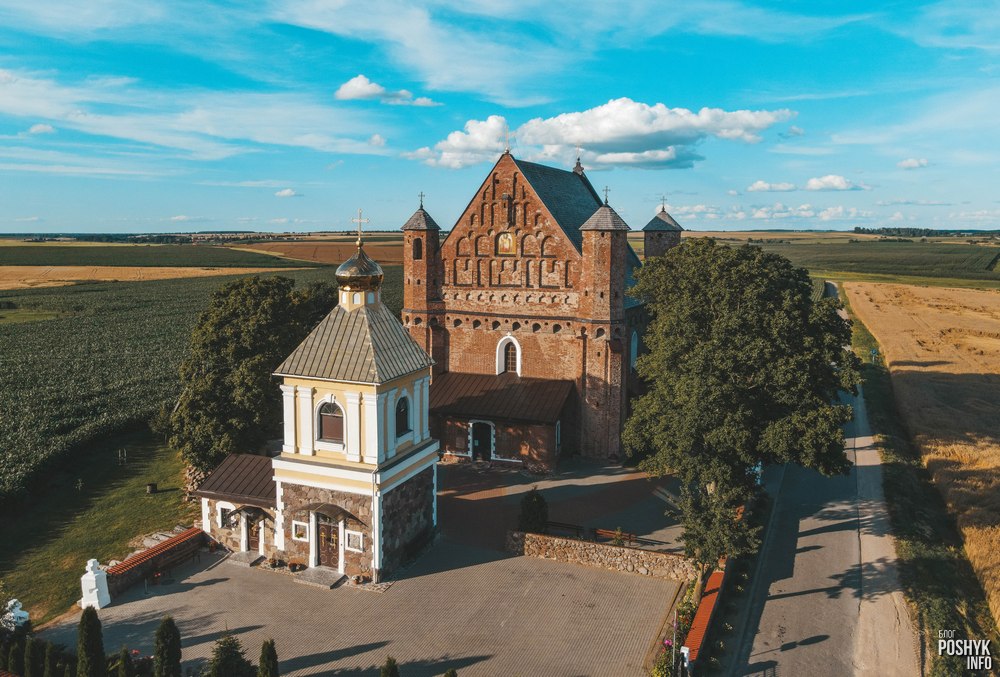


Synkovichi Church It is considered one of the first defensive temples of the time of the Grand Duchy of Lithuania. Very few of these buildings have survived. Unfortunately, little historical information has been preserved around this unique temple-fortress, most of which often refute each other.
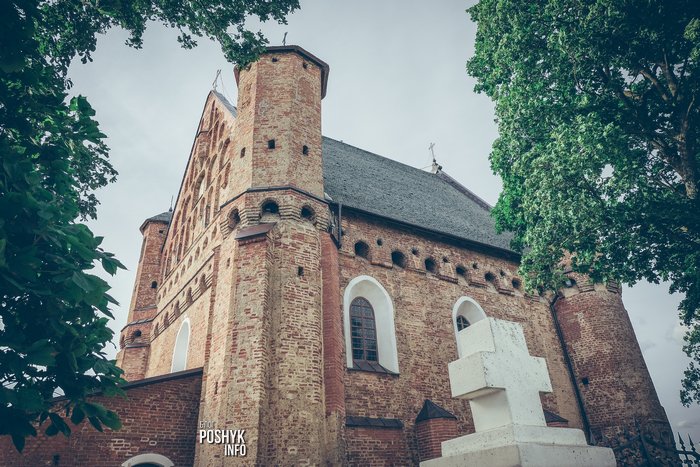
Church of St. Michael the Archangel incorporated the best of different styles of architecture. Gothic, features of the Romanesque style, Renaissance and even Old Russian architecture are clearly manifested here.

Walls, one and a half meters thick, towers and loopholes - all this resembles a castle rather than an Orthodox church. There are suggestions that there was also a fifth tower, which was located right in the center of the roof, but disappeared during one of the reconstructions.

The surviving eastern towers are round, the western towers are slightly different in style. They stand on a square base, and they themselves are octagonal in shape. The upper tiers of the towers are richly cut with loopholes. There are suggestions that the lower tiers were adapted for crypts.

It is interesting that in the history of Synkovichi there is no information about the church-fortress being destroyed or captured. There is even a beautiful legend according to which, during the Northern War, King Charles 12 gave the order to destroy the temple, but ravens from the towers flew to his gunners. I had to retreat and leave Synkovichi.

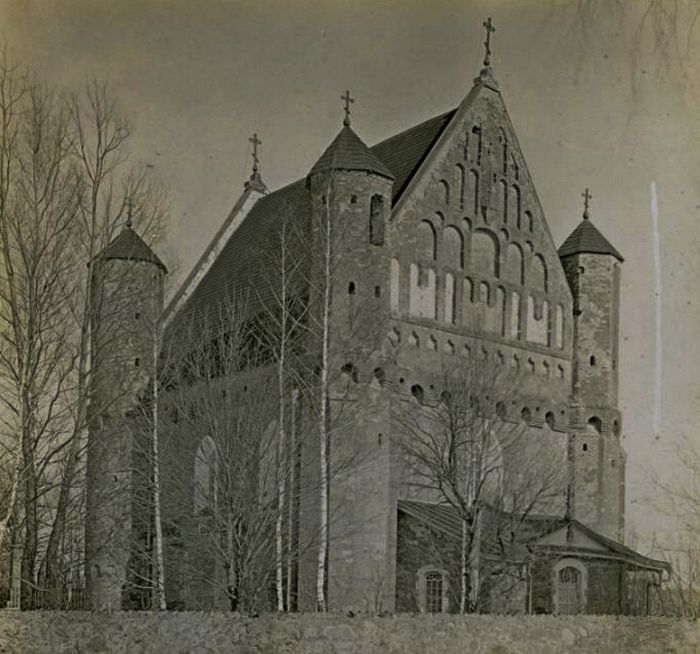
The main facade looks unusual for such a massive temple. The tiers of the pediment are decorated with elongated oval niches of various shapes. Once these niches were whitewashed and had their own unique drawings on religious themes.

The uniqueness of the architecture does not end there. The church in Synkovichi has as many as three apses, together forming a single structure, somewhat reminiscent of a defensive fortification.
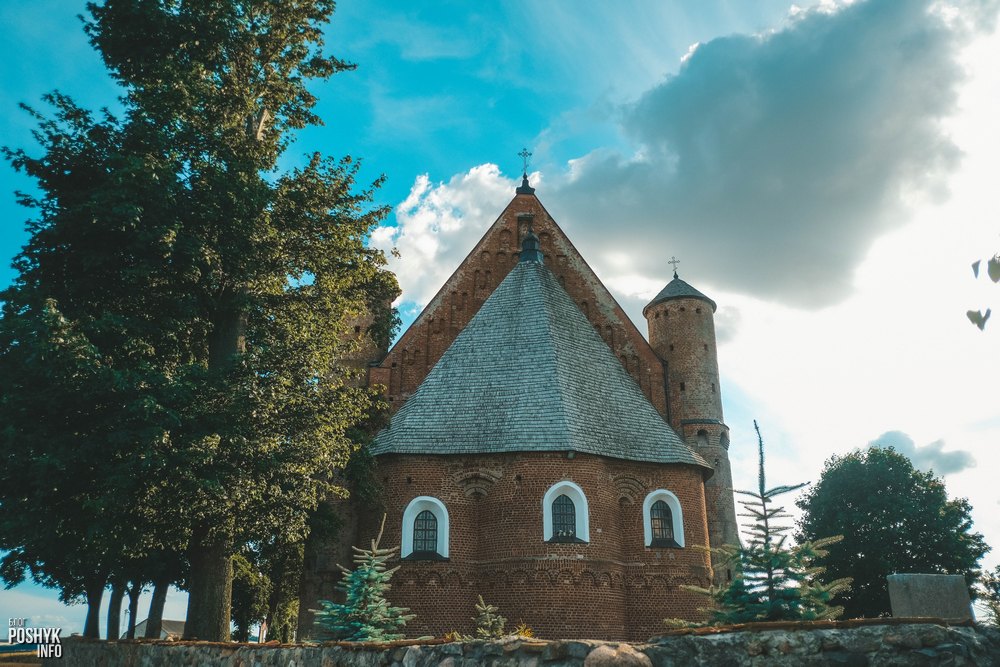
One of the apses is crowned with unusual Gothic arches in the form of a star-polyhedron (this is a symbol of the Kingdom of Heaven).
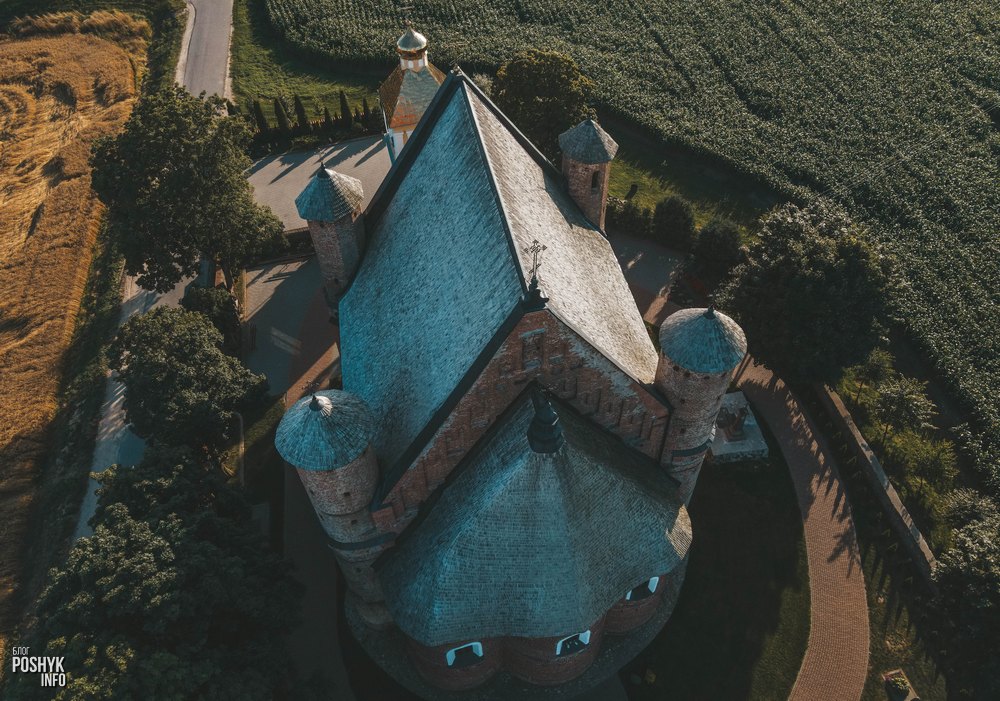
A cornice with loopholes runs along the entire perimeter of the church. The complex pitched roof also looks interesting, under it is an attic where the defensive tier of the temple used to be located.

Inside, the room is divided into 3 naves, and the main relic that pilgrims seek to see is the icon of the All-Tsaritsa.

In 1891, a belfry tower in 2 tiers was built on the church territory. The lower one is made of rubble stone, the upper one is made of brick.
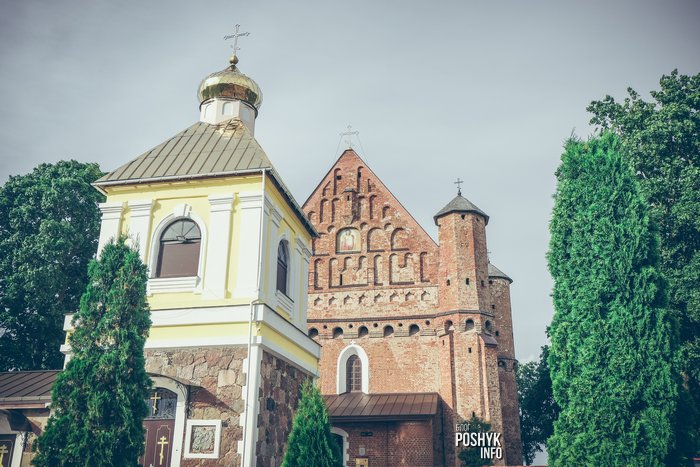
In the first half of the 20th century, the church passed into the bosom of Catholicism and until the start of World War II acted as a church. Then for many years the building was used as a warehouse for grain. In the late 80s, the building was returned to the Orthodox Church, and its reconstruction began. Divine services are held every Sunday.
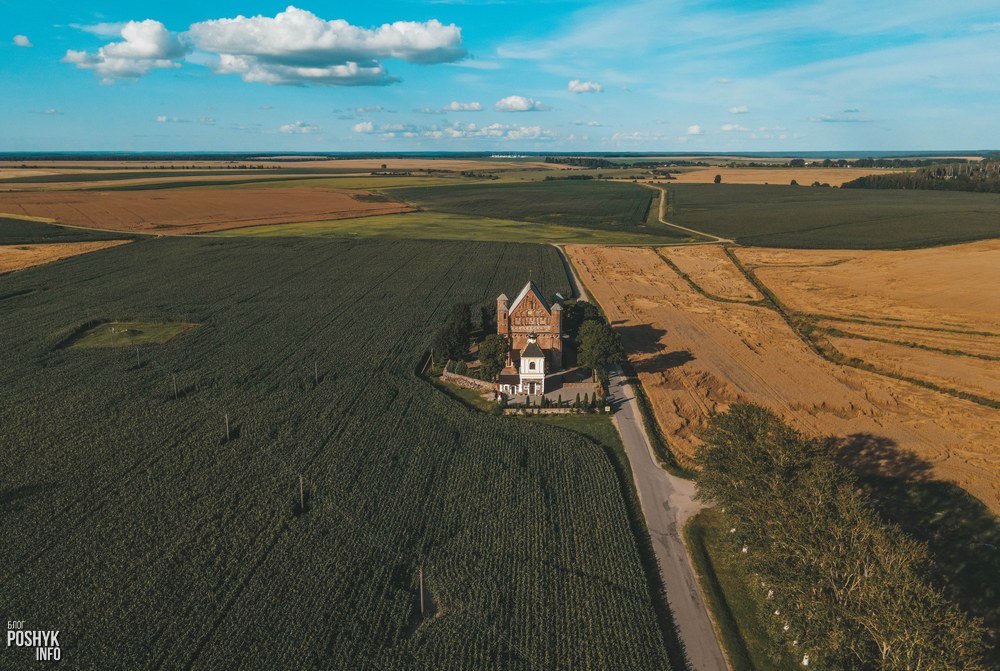
Finding this attraction is not difficult. From Slonim, take the P99 highway towards Zelva, turn right near the sign "Synkovichi".
Next to the temple is abandoned brovar Puslovskikh, and on the outskirts of Slonim, this genus had manor complex Albertin.



















